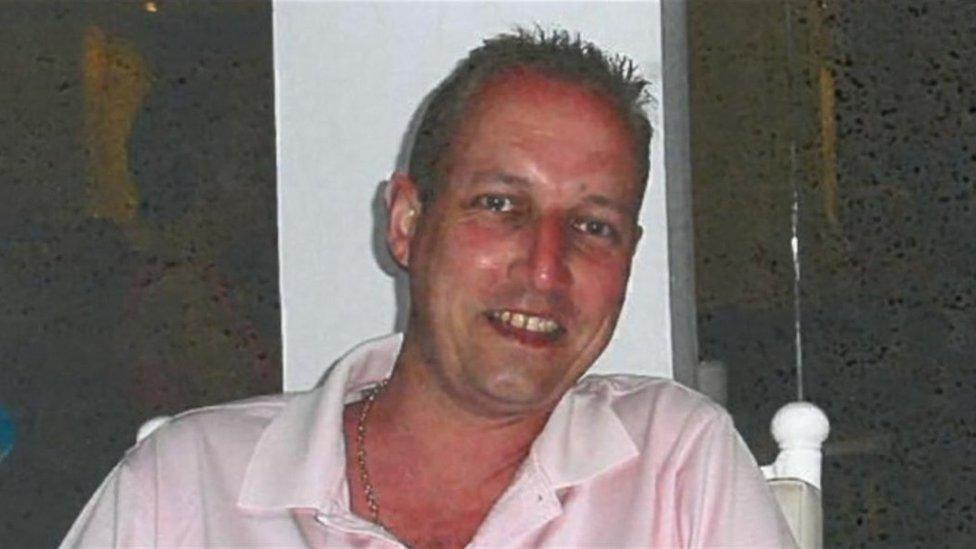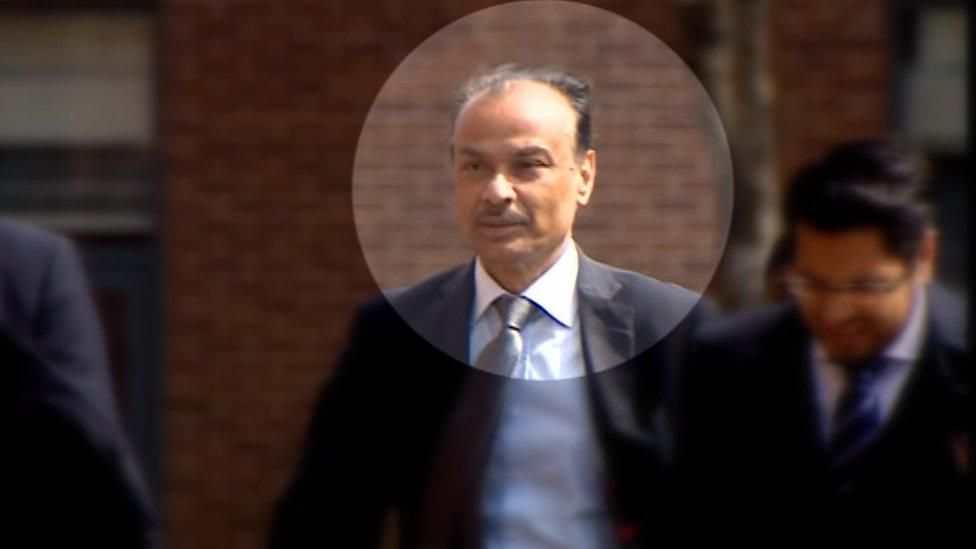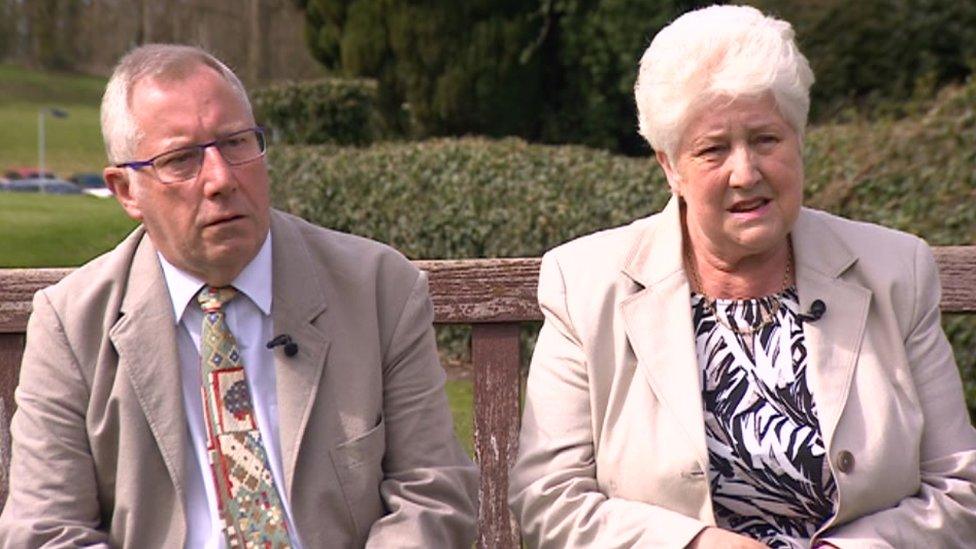Nut curry death: Mohammed Zaman continued selling dangerous meals
- Published

Paul Wilson had stated "no nuts" when ordering his curry
Indian takeaway owner Mohammed Zaman, who has been found guilty of the manslaughter of a customer with a nut allergy, was still selling "nut-free" curries containing peanuts on the day after the tragedy, trading standards officers have said.
Paul Wilson, 38, died after ordering a chicken tikka masala from the Indian Garden restaurant, in Easingwold, North Yorkshire, on 30 January 2014.
The father-of-one suffered a severe anaphylactic shock after eating a small amount of curry despite his order clearly stating "no nuts".
The next day a trading standards investigator went to the premises and asked for a nut free meal.
Tests revealed that meal contained a "sizeable amount" of ground peanuts comparable to the levels found in Mr Wilson's lethal curry.

Mohammed Zaman told the court he employed managers to run his outlets and their duties included ordering ingredients and hiring staff
Police said this was one of a string of examples of Zaman's "blatant disregard for public safety" and his interest in putting profit before customers.
Teesside Crown Court heard the 52-year-old, of Aylesham Court, Huntington, was almost £300,000 in debt and employed illegal workers in his takeaway. He had been substituting the thickening agent almond powder with ground nut mix, which contained peanuts, as a way of cutting costs.
Despite warnings from his supplier of the risk to allergic customers, Zaman, who owns six restaurants, continued to flout advice and use the less costly ingredient without warning people.
'Chicken korma almost killed me'
Less than a month before Mr Wilson's death, student Ruby Scott suffered a similar allergic reaction after eating what was supposed to be a nut free chicken korma from another of Zaman's restaurants in the town.
After eating a spoonful of the meal, the 17-year-old's face and throat became swollen and she was covered in hives. She was saved after being taken to hospital and treated with steroids.
Her mother said when she challenged restaurant staff at the Jaipur Spice restaurant, they denied using peanuts and said their curries only contained almonds.
An investigation was started by trading standards and - one week before Mr Wilson died - an officer found potentially deadly amounts of peanuts in a supposedly peanut free meal at the restaurant. Officers then warned Zaman about the dangers.
Trading standards officer Rob Blacklock said: "They were just totally slack about what they were doing in the business because I guess they thought nothing like that would ever happen.
"If you go to a restaurant, you don't expect to die from eating a meal. It's important owners have the right procedures, buy the right ingredients and employ the right staff to make up the meals."

Mr Wilson's parents want to raise awareness of dealing with food allergies within the catering industry
Police said that Zaman's actions of "cutting corners" meant that Mr Wilson, a pub manager and chef, died despite being meticulous in protecting himself from his nut allergy.
He was diagnosed with the condition aged seven, having had a severe reaction after eating a chocolate bar containing nuts. Throughout his life he had avoided all nuts as a matter of course.
His father Keith Wilson said: "He would not have peanuts anywhere near him. If he went out for a drink and there were peanuts on the bar he'd ask them to be moved or he'd move away because his lips would start swelling."
The family recalled the last conversation with their son, just hours before he was found dead in the bathroom of his home in Helperby, North Yorkshire.
Mrs Wilson said: "His last words were I love you both and I'll talk tomorrow."
Det Insp Shaun Page, from North Yorkshire Police, said Zaman's lack of remorse throughout the case had been striking.
"He had no regard for customer safety. What came first was his back pocket and profit. He did everything he could to save money and Paul paid the ultimate price for that."
- Published23 May 2016
